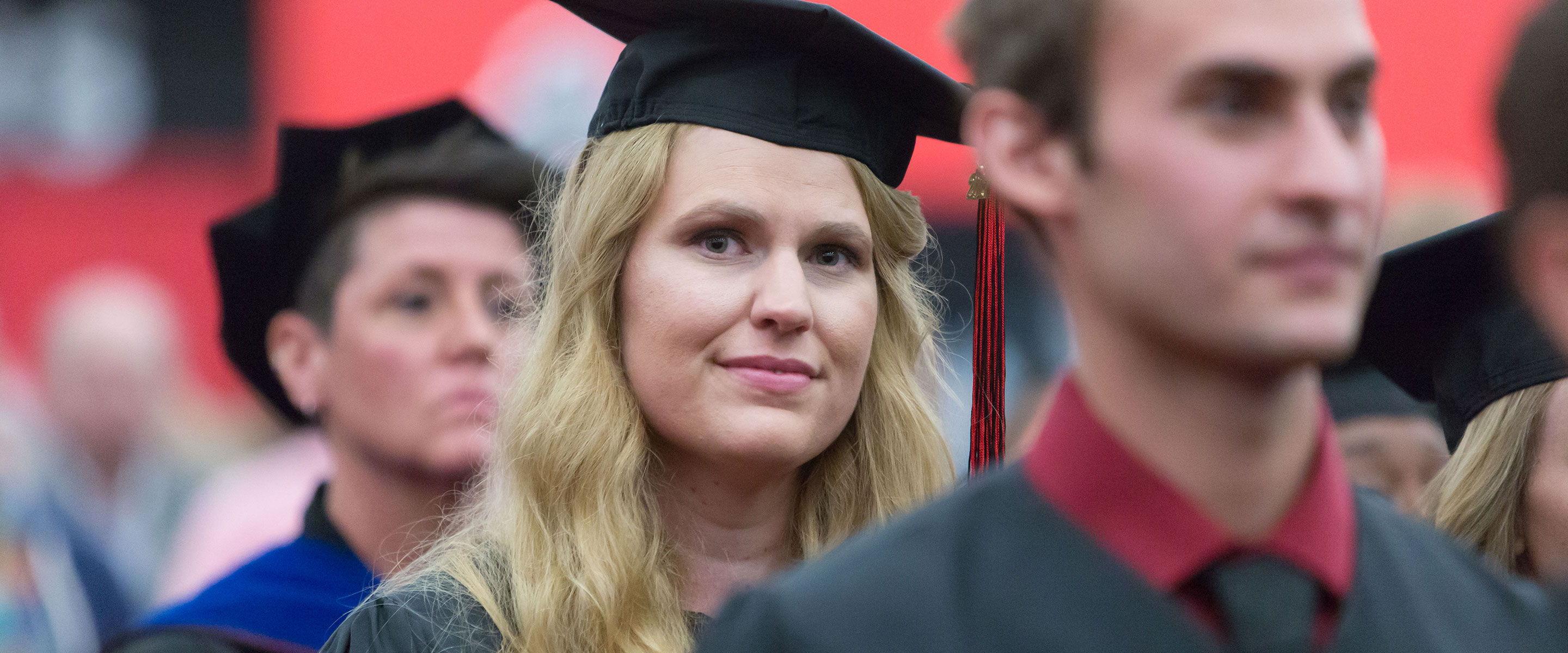Is Communication Sciences and Disorders the right major for you?
A major in Communication Sciences and Disorders is a preprofessional degree that prepares students who seek to assist individuals with communication and swallowing disorders improve their quality of life. ESU offers an undergraduate (B.S.) and graduate (M.S.) in communication sciences and disorders. Students in the undergraduate program take courses in preparation for further education in several related fields, most interested in pursuing a career in speech-language pathology. ESU’s graduate program prepares students to become licensed and certified speech-language pathologists.
Graduate Programs

What do speech-language pathologists do?
- Help individuals with articulation disorders learn how to say speech sounds correctly
- Assist individuals with voice disorders develop proper control of the vocal and respiratory systems for correct voice production
- Assist individuals who stutter increase their fluency
- Help children with language disorders improve language comprehension and production (e.g., grammar, vocabulary, and conversation, and story-telling skills)
- Assist individuals with aphasia improve comprehension of speech and reading and production of spoken and written language
- Assist individuals with severe communication disorders with the use of augmentative and alternative communication (AAC) systems, including speech-generating devices (SGDs)
- Treat social and language disorders in individuals with autism spectrum disorder (ASD)
- Help people with Swallowing disorders
- Help people with cognitive-communication disorders – the impairment of cognitive processes including attention, memory, abstract reasoning, awareness, and executive functions (e.g., self-monitoring, planning and problem solving).
- Auditory processing disorders – the inability to understand spoken language in the absence of a hearing problem.
- Accent modification and transgender voice modification for individuals without communication
(Source: www.asha.org)
SLPs receive extensive training. They have to have at least a master's degree, must pass a Praxis exam, and they also put in clinical hours, where they work under a certified SLP to become a licensed and certified practitioner. If they work in a school setting, they will also need to obtain teacher certification in the state of practice.
- Employment of speech-language pathologists is projected to grow 18 percent from 2023 to 2033, much faster than the average for all occupations.
- The current shortage of SLPs has impacted both school and healthcare organizations.
Why Choose the SLHS Program at ESU?
- Extensive and inclusive faculty interaction and support
- Small class sizes for major classes
- State of the art technology and facilities
- Service learning opportunities
- Exceptional graduation rates, board pass rates, and future employment rates
Speech Language Pathologists Provide Professional Services In
- Public and private schools
- Hospitals (acute, inpatient, outpatient)
- Rehabilitation centers
- Short-term and long-term nursing care facilities
- Community clinics
- Colleges and universities
- Private practice
- Home care (Early Intervention and for adults)
- Centers for persons with developmental disabilities
- Research laboratories
Contact Us
Campus Address
Monroe Hall
(570) 422-3247
Department Chair, Speech, Language, and Hearing Sciences
Dr. Rachel Wolf
rewolf@esu.edu
(570) 422-3929

